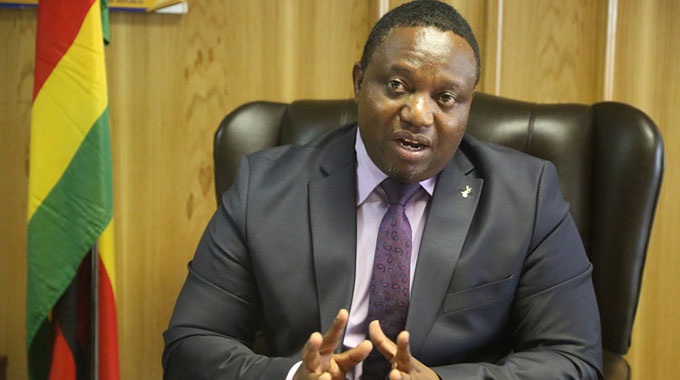Security services rallied to safeguard sovereignty

Crime Reporter
Zimbabwe is susceptible to national security threats and security services must continue jealously safeguarding the country’s sovereignty, Home Affairs and Cultural Heritage Minister Kazembe Kazembe has said.
Addressing officers at the Zimbabwe National Defence University in Mazowe on Zimbabwe’s security challenges and their implication on national security, Minister Kazembe said security services including the Zimbabwe National Army, Air Force of Zimbabwe, Zimbabwe Republic Police, Zimbabwe Prisons and Correctional Services and the intelligence services, should continue to work hard in safeguarding not only Zimbabwe’s independence, but also peace and tranquillity for posterity.
Some of the internal threats to national security include crime, abuse of social media, food insecurity, pandemics, economic challenges, foreign powers and their influence on internal security, sanctions, religious intolerance, corruption and lack of resources.
On crime, Minister Kazembe said, there was little doubt that high levels of criminality portray a negative picture on the country’s image.
“Not only that, the ability of a country to attract foreign investments is also premised on the investor’s barometer of criminal activities. Insecurity discourages investment and makes it unattractive to do business in a country prone to crime. This is because it increases the cost of doing business either through direct loss of goods and property or the cost of taking precautions against business risks and uncertainty,” he said.
Events unfolding across the globe have proven beyond doubt that social media can threaten internal security.
“Although social media can act as a tool for widening the democratic space, it can also be a catalyst for destabilisation. In essence, social media has been abused by some elements in our society to spread hate speech and incite violence. Terrorist organisations have also abused the social media as a tool for ideological orientation and radicalisation, recruitment, communicating and training.
“Across the world, there are cases and instances where social media played a facilitative role in distributing internal peace of certain countries. For instance, the Arab Spring and the 2008 post-election violence in Kenya are vivid examples,” he said.
Terrorist groups like the Islamic jihadists, said Minister Kazembe, often use social media platforms like Facebook and YouTube for recruitment and fundraising.
“In the Zimbabwe context, social media has also been used as a tool for disturbing the internal security. As you may all be aware, the country has in the recent past witnessed the spreading of fake news as well as attacks on several Government officials via social media,” he said.
To address the threat, Minister Kazembe said there was need for the regulation of the social media through the enactment of relevant laws aimed at giving law enforcement agencies the requisite regulatory framework to monitor social media activities within the confines of the constitution.
“Cognisant of the dangers posed to internal security by social media, the Government of Zimbabwe is in the process of promulgating the Cyber Security and Cyber Crime law. It is our hope that this piece of legislation will go a long way in addressing issues affecting Zimbabwe’s cyberspace and related crimes,” he said.
The event was attended by security services agencies and Government officials.









Comments